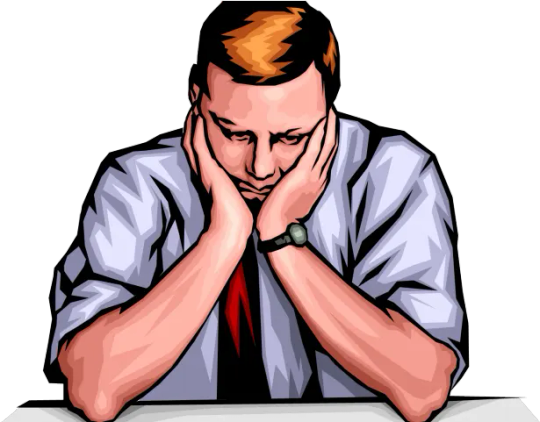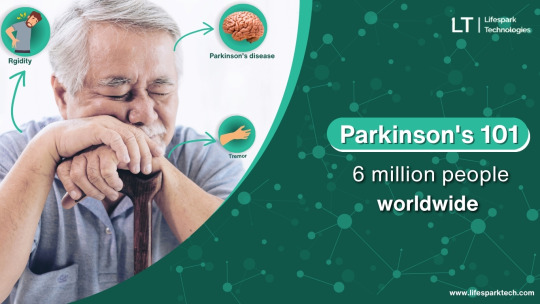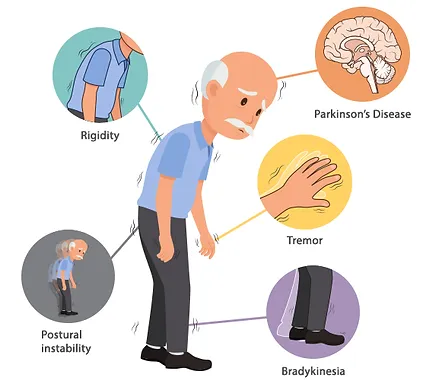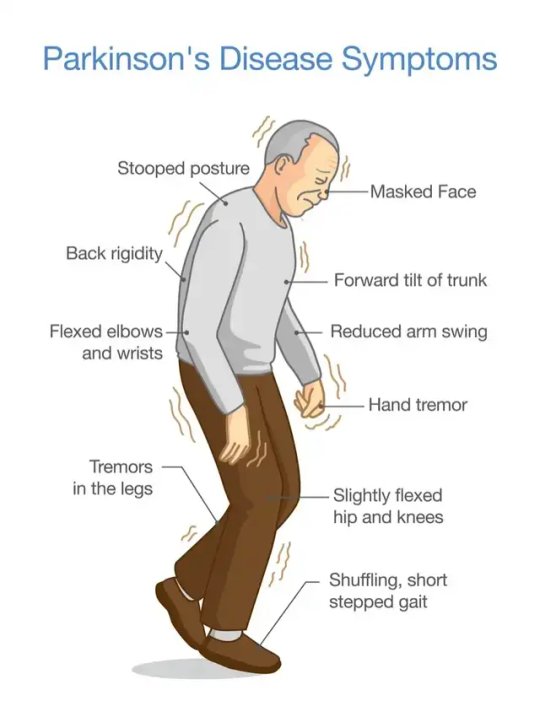#livingwithparkinsons
Explore tagged Tumblr posts
Text
Side Effects of Parkinson’s Medicines

Parkinson’s Disease results in many symptoms , some in early stages, which continue to get severe, and some develop as the disease progresses. Though, there is no cure to PD, there are many medications that are prescribed to reduce severity of the symptoms. Taking these medicines are essential to the quality of life of the PwPD as it allows them to carry on with their routine life as long as possible, and give them relief from pain and other disturbing symptoms.
Some of the medicines are known to create some side effects. This post talks about the same related information. We are going to follow the path of medicines that are commonly used by physicians, and accompanying them are narrated their commonly known side-effects.
Levodopa :
This is the most commonly used medication for PD.
In the early days of starting this medication, some PwPD feel nausea, but good news is that - many of them get over this the as body adjusts to the medicine. As Levodopa is absorbed through the gut, constipation or other stomach related problems occur for some.
After taking Levodopa for a long time, some people may have increased involuntary movements, in which case the dosage would have to be adjusted by the physician.
Other known side effects are:
1. Confusion
2. Mood swings
3. Sleepiness, fainting or dizziness
4. Hallucinations and delusions
5. Impulsive and compulsive behaviour
Side effects of levodopa can sometimes be improved by changing your dose, the form of the drug or how often you take it. It may also be combined with other types of drugs.
Continue Reading 📖📖.....
Click on the Below Link 🔗 👇
#ParkinsonsMedication#SideEffectsOfPDDrugs#ParkinsonsTreatment#MedicationAwareness#LivingWithParkinsons#ParkinsonsCare#PDDrugSideEffects#MovementDisorders#ParkinsonsResearch#NeurologyCare#LifesparkTech#MedicationManagement#ParkinsonsAwareness#PatientSafety#neurology#neurologicaldisorders#lifesparktechnologies
0 notes
Text
Mood fluctuations in Parkinson's
Happy to see the new “Haiku for Parkinson’s” blog post on The Haiku Foundation site: using haiku to reflect on, and gain a sense of control over, the ups and downs of mood in Parkinson’s. Read it here: https://thehaikufoundation.org/haiku-for-parkinsons-mood…/ #haiku4parkinsons#h4p#Parkinsons#ParkinsonsDisease#haikufound#livingwithparkinsons#MovementDisorder#Parkinson’s

View On WordPress
#haiku#Parkinson&039;s#haiku4parkinsons#haikufound#livingwithparkinsons#Parkinson&039;s Awareness#Parkinson&039;s Awareness Month#TheHaikuFoundation#worldparkinsonsday
0 notes
Text
Physical Exercise and Parkinson’s
A new review has confirmed that exercise can help improve movement-related symptoms for people who have Parkinson's disease, particularly any type of structured exercise, researchers have said. The findings were published recently in the Cochrane Library 5 January 2023.
Parkinson's Disease
Parkinson's disease is a progressive disorder of the nervous system that mostly affects people over 60. Symptoms can include trembling, stiffness, slowness of movement, balance issues and lack of coordination. Patients may also have emotional and mood problems, fatigue, sleep problems and thinking difficulties.
The Review
The review aimed to find out what exercise worked best to improve movement and quality of life for those with Parkinson's disease. Until now, it has been unclear whether some types of exercise work better than others. In the new review, researchers analysed 156 randomised controlled trials, comparing exercise with no exercise and with different types of exercise.
Parkinson's Trials
The trials included nearly 8,000 people from around the world and is the largest and most comprehensive review on the effects of physical exercise in people with Parkinson's.
The reviewers found that physical exercise such as dance, water exercise, strength and resistance exercise, endurance exercise, tai chi, yoga, and physiotherapy made mild to large improvements to the severity of motor symptoms and quality of life in these patients.
Most of those who took part in the trials had mild to moderate disease, without impairment to their thinking processes. They were an average age range of 60 to 74.
Review Observations
Clinically, meaningful improvements were observed in the severity of motor symptoms for most types of exercise. For quality-of-life improvements, researchers found beneficial effects for water-based training and effects that were probably clinically meaningful for several types of exercise, including endurance training, mind-body training, training to improve gait, balance, movement and multi-exercise training.
Improvements through exercise
The authors say their review highlights the fact that most types of exercise, produced meaningful improvements, indicating that people with Parkinson's disease can benefit from various structured exercise programs to improve the severity of motor symptoms and their quality of life.
The key findings are exercise of any kind, can help Parkinson's patients move and feel better. With meaningful improvements, whether it is dancing, water aerobics, resistance training, tai chi, or yoga. The researchers also noted that certain types of physical therapy designed specifically for Parkinson's patients, may be best for certain symptoms. (Source: https://www.cochranelibrary.com https://consumer.healthday.com)
Conclusion
The importance of exercise has long been documented. It is pleasing to read about exercise in the context of neuro-physical disability, particularly Parkinson's. After Alzheimer's Disease, Parkinson's is the second-most common neuro-degenerative disease and more than 10 million people worldwide are living with Parkinson's. (Source: https://www.parkinson.org)
Exercise is important for overall health.
For more inspirational, life-changing blogs, please check out my site https://www.thecpdiary.com
#thecpdiary#lifestyleblog#PhysicalExercise#and#Parkinsons#@MichaelJFox.org#LivingwithParkinsons#KeepExercising#KeepMoving#with#ParkinsonsDisease#ParkinsonsAwareness#MentalHealth#PhysicalWellness
0 notes
Text
LIVINGWITHPARKINSON Chapter #29
Whoever does not love has not come to know God, because God is love. -1 John 4:8
I usually write my thoughts at 36000 feet coming home or going to somewhere as I look out the window fascinated by God’s endless creation.
Today, I write from a hospital bed not knowing what the future holds for me, yet faithful enough to know in whose hands my future lies.
After much testing, I’m looking at the big “C”, that dreaded word that no one wants to hear. As the doctor broke the news and I watched my wife breakdown and cry, a sense of peace overwhelmed me.
As I heard those words, I didn’t think about time limits nor the darkness I’ve just been presented with but rather hope, love and faith in a God that teaches me to know it will all be ok.
As the doctor spoke, my eyes were focused on the nurse that had just come in to set up my IV. She had never been in my room before nor has she been back since. She heard the same words as I did but her eyes never flinched. After the doctor had spoken and left and we all stood stung, she broke the silence with the simple phrase of “we need to pray” and the darkness that surrounded us became light.
As we dealt with the task of how to break the news to our kids, family and friends, my words were, “I am ok, I been through harder times”.
As the phone calls started to go out, the team of hematologist came in to explain what I was facing. To say that I’m not scared would be an understatement. Yet, there was hope in their voice. The dark picture that we were presented with moments before had a little bit of sunshine breaking through it. God’s hand was at work already.
Please Like our Facebook Page and visit our Twitter to keep our conversation going and learn more about Parkinson’s.
Facebook - https://www.facebook.com/livingwithparkinsons.net
Twitter - https://twitter.com/mluc204

2 notes
·
View notes
Text
Emotional and Psychological Effects of Parkinson’s Disease

Getting diagnosed with Parkinson’s Disease is stressful for any person (Who can diagnose PD and how). Beyond acceptance of diagnosis, there is a long journey for the PwPD and the family. The journey is full of challenges, learnings and ways of defining or arranging life around the progress of condition. This involves not just the person (PwPD) but the immediate family too.
The effect of PD on physical health has been well known and it is also discussed in our article - Symptoms of PD. The treatment of the physical effects involves medication, physiotherapy and many other methods.
Subtle or Pronounced - but Yes!
However, during this journey, the PwPD and the family can experience mental and emotional impact too. If one comes across a family member of a person who has PD, one is very likely to hear them say something simila to - “Parkinson’s has made my spouse / partner / parent / sibling different.”
The changes may be subtle or more evident, but most of them feel that the loved one has changed from who they were. As for the person himself/herself, they may also notice how they think or feel about their surroundings and themselves as compared to earlier.
Is it normal?
Continue reading....📖📖
Click on the Link Below ⬇️:
#ParkinsonsAwareness#EmotionalWellbeing#PsychologicalEffects#ParkinsonsSupport#DepressionInParkinsons#AnxietyInPD#PDAndMentalHealth#LivingWithParkinsons#ParkinsonsCare#EmotionalResilience#LifesparkTech#NeurologyAndMentalHealth#ParkinsonsJourney#neurology#neurologicaldisorders#lifesparktechnologies
0 notes
Text
Questions to ask after Parkinson's Diagnosis

Background :
There were symptoms you or your loved one had. After a few visits to doctors (family doctor / neurologist), a diagnosis of Parkinsons has been received by you.
For many families this could be the first time encounter with Parkinsons - in the sense that - they have not known anyone in the immediate family, extended family or friend circle having had this condition. They could have heard fleetingly that this results in tremors of the hands and few other symptoms.
Initial Response :
On hearing the diagnosis one may feel shocked, sad or even terrified. No matter what emotions you experience, there is a very good chance that you have no idea what to do next. There could be many questions swirling in your mind, and you do not know what more you should ask the doctor. You may want to give yourself some time alone and with family and note down questions before scheduling your next visit.
We believe that for these families, it would be good to know what they could ask the doctor/s and thus be more prepared for the journey ahead.
For More Click ⬇️
#ParkinsonsDiagnosis#PDQuestions#UnderstandingParkinsons#ParkinsonsSupport#AskYourDoctor#ParkinsonsJourney#ParkinsonsAwareness#PDResources#LivingWithParkinsons#NeurologyCare#ParkinsonsEducation#PDManagement#CopingWithParkinsons#PatientAdvocacy#ParkinsonsTreatmentOptions
0 notes
Text
Parkinson's 101

There is no simple way to deal with the life-changing event of a Parkinson’s diagnosis. The good news: Most people find acceptance and quality of life after the initial adjustment period.
What Is Parkinson's Disease?
Parkinson’s disease (PD) occurs when brain cells that make dopamine, a chemical that coordinates movement, stop working or die. Because PD can cause tremor, slowness, stiffness, and walking and balance problems, it is called a “movement disorder.” But constipation, depression, memory problems and other non-movement symptoms also can be part of Parkinson’s. PD is a lifelong and progressive disease, which means that symptoms slowly worsen over time.

The experience of living with Parkinson's over the course of a lifetime is unique to each person. As symptoms and progression vary from person to person, neither you nor your doctor can predict which symptoms you will get, when you will get them or how severe they will be. Even though broad paths of similarity are observed among individuals with PD as the disease progresses, there is no guarantee you will experience what you see in others. Estimates suggest that Parkinson’s affects nearly 1 million people in the United States and more than 6 million people worldwide.
#parkinsonssymptoms#earlysignsofparkinsons#movementdisorders#ParkinsonsDisease#LivingWithParkinsons#PDResearch#ParkinsonsAwareness#ParkinsonsSupport#BeatParkinsons#PDWarriors#ParkinsonsCommunity#ParkinsonsTreatment#FightParkinsons#ParkinsonsCare#PDJourney#ParkinsonsEducation#Neurology#ParkinsonsAdvocacy#ParkinsonsResources#ParkinsonsLife#EndParkinsons
0 notes
Text
Symptoms of Parkinson's Disease
Parkinson's disease symptoms are different for different people. Some are hard for even doctors to detect. Others are obvious even to an untrained eye. Visit a movement disorder specialist if you think you're experiencing Parkinson's symptoms.
Motor Symptoms

People are usually more familiar with the motor (movement) symptoms of Parkinson's disease (PD). These signs are noticeable from the outside and are used by doctors to make a diagnosis. The three "cardinal" motor symptoms of PD are:
Stiffness (rigidity): muscle stiffness detected by a doctor on examination
Slowness (bradykinesia): decrease in spontaneous and voluntary movement; may include slower walking, less arm swinging while walking, or decreased blinking or facial expression
Resting tremor: a rhythmic, involuntary shaking that occurs in a finger, hand or limb when it's relaxed and disappears during voluntary movement .
Read More .... (click👇)
#ParkinsonsSymptoms#ParkinsonsDisease#ParkinsonsAwareness#LivingWithParkinsons#PDWarriors#ParkinsonsCommunity#Rigidity#NeurologicalHealth#MovementDisorders#EarlySignsOfParkinsons#ParkinsonsManagement#ParkinsonsCare#walk
0 notes
Text
January floods
January floodsrattling of the bronchial tubesall night

View On WordPress
#haiku#haiku4parkinsons#haikufound#livingwithparkinsons#Parkinsons#parkinsonsawareness#parkinsonssupport#poem
0 notes
Text
Haiku for Parkinson's: Interview-Tim Roberts
The second installment of Haiku for Parkinson’s is the interview of a British poet, now living in New Zealand, Tim Roberts. Tim describes his haiku practice and the ways it helps him with his Parkinson’s symptoms. It has not been an easy ride. He says: I had to stop work shortly after being diagnosed. I was adrift. I didn’t have any real hobbies and lost my identity. I felt rudderless and…

View On WordPress
1 note
·
View note
Text
LIVINGWITHPARKINSON Chapter #28
But anyone who does not love does not know God for God is love.
As I was listening to music while doing my exercises, I ran across this song by The Black Eyed Peas "#WHEREISTHELOVE and the above phrase just stuck in my head.
As I ponder on what's happening in my life today, and as much as I try, I sometimes can't help but wonder "where is the love". GOD!
I wish I wasn't in the place I am today or that God would have spared me from experiencing what I am going through. I just want to be normal, to enjoy life as I did but I know that's impossible.
Parkinson's does not only affect me physically but it also strangles my mind.
What once was normal has now become a struggle. Things as easy as typing my thoughts have now become difficult as I deal with my tremors.
I now have to be conscious of each step when I walk to keep my balance. I struggle with my coordination as it becomes difficult to stand still in place. The instability makes what were once natural movements, a conscious effort in all I do. Just getting up from a seating position is a battle.
Physical limitations to someone who was very active eats up your mind. The involuntary movement has now set limits on my freedom. I find my personality changing, from someone who once didn't care what people thought, to now hiding my hand or holding my arm to suppress the tremors that have become more constant. I've become more aware of people as I look around to see their reactions.
When I was diagnosed with Parkinson's the doctor described the progression that the disease would take both physically and mentally. With no understanding I thought to myself I am ready for this, I can handle it, but with the progression came deterioration and what I once was, I am no more.
Understand my purpose as I write this. I write not for sympathy nor for you to feel sorry for me. This was one of the reasons, coupled with the difficulty in writing that made me stop blogging. I do it so you can have an insight, an understanding, an appreciation into the place this disease can take you.
The tremors are difficult to handle. The limitation forces me to make adjustments but the mind, the place that it takes me it's difficult and scary to comprehend.
Consider this, I am in a constant battle with my mind 24 hours a day. During the day I have to keep myself busy, my mind focused, occupied to be able to stay sharp and not allow my thoughts to wonder into a deep dark hole and fall into a depression. My mind at times just walks away into space as I become focused on something that in reality doesn't exist yet. It captivates my mind until my wife snaps me back, and then I sit and wonder what just happened. I can go from super highs to extreme lows within seconds. My mind has become a roller coaster.
At night I fight night terrors, violent dreams that are so real that I physically enter into them and become part of the action within the dream. In my sleep my body experiences involuntary movement, so I wake up each morning physically tired from the battles that I've fought through the night.
I could be angry for what I'm going through. It's like walking in the shadows of what I witnessed my mom going through. I have to believe there is a purpose for what is happening in my life. A feeling that, it's happening because it's a stage in my journey through life that I need to go through in becoming the person that I am suppose to be. To look at what's been handed down and to be at peace with it is to know that I am not alone in this journey.
Even in my darkest moments I feel at peace. There is no anger in what I am going through, for I know God and I know love, his love and that's what makes me look forward to a fresh beginning each tomorrow.
Please Like our Facebook Page and visit our Twitter to keep our conversation going and learn more about Parkinson’s.
Facebook - https://www.facebook.com/livingwithparkinsons.net
Twitter - https://twitter.com/mluc204

1 note
·
View note
Text
What is Parkinson's Disease?
Parkinson’s Disease is a disorder that is chronic and progressively worsens through time. It is a disease of the neurons that creates malfunction and even death of these brain cells. As a result, the motor functions of the body are altered due to the increasing amounts of dopamine, which make it difficult for the person to have control of their movements and coordination. As the disease progresses, more dopamine is produced and the more difficult movements and cognition becomes.
The signs for PD are normally tremors, slow movements, stiffness, or balance problems. But if these were the only problems my Dad has, it would be easier. My Dad suffers from the psychosis portion of PD that often occurs in advanced cases. He has sleep disturbances, loss of vision, loss of energy, hallucinations, and dementia.
The cause of PD is unknown. This disease has no cure, but there are some medications that can help with the motor functional symptoms of the disease. The psychosis portion has not had any successful medications or treatments, until the new recently FDA approved medication that my Dad starts tomorrow.
0 notes
Text
LIVING WITH PARKINSONS
Courage doesn’t always roar. Sometimes courage is the quiet voice at the end of the day saying, ‘I will try again tomorrow.’” — Mary Anne Radmacher
It was the early 60's, Chicago was cold, winter was in full swing, to this background we had arrived in a new country and as a family began the adjustment to a new way of life much different than what we've been accustomed to.
My parents were full of hope, optimism, looking forward to a new beginning, a life in a new place, a future we needed to understand. A language, customs and culture we had to learn, become familiar with.
My mom was a strong women, elegant, full of life. She was as in most families the glue that held us all together. We depended on her for stability and guidance, which was important now more than ever as we began to blend into our new surroundings.
What I remember the most were the uncontrollable tremors, how hard it was for me to understand why it was happening. I had never been exposed to anything like this before, at first I reacted in anger. Angry at her for her imperfections, for failing to be in control, as if she could just make them go away. She who we all depended on had gone from elegant, beautiful, full of life, a wife, a mother to a shell of whom she was.
My mom had become fragile; now looking way beyond her years. Within a blink of an eye her whole life had changed, our whole world turned upside down. Concern rapidly gave way to uncertainties and insecurity as we dealt with this and our new surroundings. Now the one person I depended on most was unable to even control her own body.
I remember wanting her back the way she was as if in the innocence of my mind it was possible for her to do; never realizing that even she couldn't understand what was happening within herself.
This was my first exposure to living with Parkinson’s.
http://www.pdf.org/about_pd
0 notes